第26章 CHAPTER I TWO CHILDHOODS(24)
"No, let me say all!" I replied, in the excitement of my intolerable pain. "It concerns my life, my whole being, my inward self; it contains a secret you must know or I must die in despair. It also concerns you, who, unawares, are the lady in whose hand is the crown promised to the victor in the tournament!"Then I related to her my childhood and youth, not as I have told it to you, judged from a distance, but in the language of a young man whose wounds are still bleeding. My voice was like the axe of a woodsman in the forest. At every word the dead years fell with echoing sound, bristling with their anguish like branches robbed of their foliage. Idescribed to her in feverish language many cruel details which I have here spared you. I spread before her the treasure of my radiant hopes, the virgin gold of my desires, the whole of a burning heart kept alive beneath the snow of these Alps, piled higher and higher by perpetual winter. When, bowed down by the weight of these remembered sufferings, related as with the live coal of Isaiah, I awaited the reply of the woman who listened with a bowed head, she illumined the darkness with a look, she quickened the worlds terrestrial and divine with a single sentence.
"We have had the same childhood!" she said, turning to me a face on which the halo of the martyrs shone.
After a pause, in which our souls were wedded in the one consoling thought, "I am not alone in suffering," the countess told me, in the voice she kept for her little ones, how unwelcome she was as a girl when sons were wanted. She showed me how her troubles as a daughter bound to her mother's side differed from those of a boy cast out upon the world of school and college life. My desolate neglect seemed to me a paradise compared to that contact with a millstone under which her soul was ground until the day when her good aunt, her true mother, had saved her from this misery, the ever-recurring pain of which she now related to me; misery caused sometimes by incessant faultfinding, always intolerable to high-strung natures which do not shrink before death itself but die beneath the sword of Damocles; sometimes by the crushing of generous impulses beneath an icy hand, by the cold rebuffal of her kisses, by a stern command of silence, first imposed and then as often blamed; by inward tears that dared not flow but stayed within the heart; in short, by all the bitterness and tyranny of convent rule, hidden to the eyes of the world under the appearance of an exalted motherly devotion. She gratified her mother's vanity before strangers, but she dearly paid in private for this homage.
When, believing that by obedience and gentleness she had softened her mother's heart, she opened hers, the tyrant only armed herself with the girl's confidence. No spy was ever more traitorous and base. All the pleasures of girlhood, even her fete days, were dearly purchased, for she was scolded for her gaiety as much as for her faults. No teaching and no training for her position had been given in love, always with sarcastic irony. She was not angry against her mother; in fact she blamed herself for feeling more terror than love for her.
"Perhaps," she said, dear angel, "these severities were needful; they had certainly prepared her for her present life." As I listened it seemed to me that the harp of Job, from which I had drawn such savage sounds, now touched by the Christian fingers gave forth the litanies of the Virgin at the foot of the cross.
"We lived in the same sphere before we met in this," I said; "you coming from the east, I from the west."She shook her head with a gesture of despair.
"To you the east, to me the west," she replied. "You will live happy, I must die of pain. Life is what we make of it, and mine is made forever. No power can break the heavy chain to which a woman is fastened by this ring of gold--the emblem of a wife's purity."We knew we were twins of one womb; she never dreamed of a half-confidence between brothers of the same blood. After a short sigh, natural to pure hearts when they first open to each other, she told me of her first married life, her deceptions and disillusions, the rebirth of her childhood's misery. Like me, she had suffered under trifles; mighty to souls whose limpid substance quivers to the least shock, as a lake quivers on the surface and to its utmost depths when a stone is flung into it. When she married she possessed some girlish savings; a little gold, the fruit of happy hours and repressed fancies. These, in a moment when they were needed, she gave to her husband, not telling him they were gifts and savings of her own. He took no account of them, and never regarded himself her debtor. She did not even obtain the glance of thanks that would have paid for all.